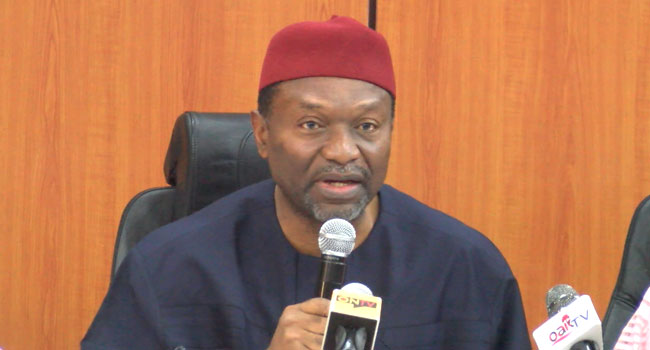
The faithful implementation of the provisions of the 2016 budget will lead to a sustainable turnaround for the Nigerian economy in spite of the prevailing challenges, the Budget and National Planning Minister, Senator Udoma Udo Udoma has assured.
Udoma said the budget was deliberately meant to, among others, stop the economic decline which became apparent in 2014, reverse the slide that has continued since then and restore the economy to the path of growth, going forward.
The Minister who was interacting with Old Boys of Kings College on the 2016 Budget, in Lagos on Saturday, explained that the 2016 Budget was designed to actively pursue macroeconomic policies and growth strategies that will reflate the economy, by investing in key infrastructure and social development.
The decision to adopt the Zero Base Budgeting (ZBB) system was also deliberately taken to complement the desire because it requires Ministries, Departments and Agencies (MDAs) of government to carry out fresh evaluation of all projects/programmes based on the priorities of government, he added.
While admitting that the country has been going through very difficult times, Udoma took his audience down memory lane and recalled that oil prices which had been above US$110pb in 2014 crashed to under US$30pb by January this year, pointing out that though it has picked up to about US$50pb in recent months, it was not likely that it will return to the US$100pb plus price scenario of pre-2014.
“As if that was not bad enough, we have also been experiencing major production disruptions caused by the activities of militants. These low prices and production disruptions have led to significant revenue shortfalls”, he pointed out.
Consequently, the Minister said, “since 2014 the economy has been experiencing continuing decline in revenue, weakening balance of payments, declining foreign reserves, rising public debt, weak capital market, rising inflation, increasing infrastructure and housing deficits, rising unemployment… leading to declining GDP”.
Apart from the challenges on the local front, the Minister said the situation was further compounded by the general weakening of economic growth in emerging market economies and security challenges in different parts of the world as well as the local security challenges, ranging from the Boko Haram insurgency in parts of the North East, militant activity in the Niger Delta, ethnic agitations in the South East, clashes with Fulani herdsmen in different parts of the country and other acts of criminality, such as kidnapping.
“This was the trend that we were faced with when we were sworn into office on the 11th of November, 2016. And as the Minister assigned with the responsibility for Budget and National Planning, my initial task was to help to develop a budget that would help, firstly, to stop the economic decline, and then to reverse it and restore the economy to the path of growth”, he told the gathering.
Udoma said the economic team had to move fast to arrest the declining situation by coming out with a fiscal document anchored on the pillars of Economic Reforms, Infrastructure, Social Development, Governance & Security, Environment, as well as States/Regional Development; guided by the 2016-2018 Medium Term Expenditure Framework (MTEF) and Fiscal Strategy Paper.
According to him, the primary goal of the budget was to reflate and reposition the economy to achieve key objectives including ensuring a stable macroeconomic environment for real sector development; investing in critical infrastructure, science, technology and innovations that will enhance productivity and lower costs of doing business.






